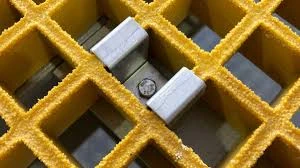
-
 Afrikaans
Afrikaans -
 Albanian
Albanian -
 Amharic
Amharic -
 Arabic
Arabic -
 Armenian
Armenian -
 Azerbaijani
Azerbaijani -
 Basque
Basque -
 Belarusian
Belarusian -
 Bengali
Bengali -
 Bosnian
Bosnian -
 Bulgarian
Bulgarian -
 Catalan
Catalan -
 Cebuano
Cebuano -
 China
China -
 China (Taiwan)
China (Taiwan) -
 Corsican
Corsican -
 Croatian
Croatian -
 Czech
Czech -
 Danish
Danish -
 Dutch
Dutch -
 English
English -
 Esperanto
Esperanto -
 Estonian
Estonian -
 Finnish
Finnish -
 French
French -
 Frisian
Frisian -
 Galician
Galician -
 Georgian
Georgian -
 German
German -
 Greek
Greek -
 Gujarati
Gujarati -
 Haitian Creole
Haitian Creole -
 hausa
hausa -
 hawaiian
hawaiian -
 Hebrew
Hebrew -
 Hindi
Hindi -
 Miao
Miao -
 Hungarian
Hungarian -
 Icelandic
Icelandic -
 igbo
igbo -
 Indonesian
Indonesian -
 irish
irish -
 Italian
Italian -
 Japanese
Japanese -
 Javanese
Javanese -
 Kannada
Kannada -
 kazakh
kazakh -
 Khmer
Khmer -
 Rwandese
Rwandese -
 Korean
Korean -
 Kurdish
Kurdish -
 Kyrgyz
Kyrgyz -
 Lao
Lao -
 Latin
Latin -
 Latvian
Latvian -
 Lithuanian
Lithuanian -
 Luxembourgish
Luxembourgish -
 Macedonian
Macedonian -
 Malgashi
Malgashi -
 Malay
Malay -
 Malayalam
Malayalam -
 Maltese
Maltese -
 Maori
Maori -
 Marathi
Marathi -
 Mongolian
Mongolian -
 Myanmar
Myanmar -
 Nepali
Nepali -
 Norwegian
Norwegian -
 Norwegian
Norwegian -
 Occitan
Occitan -
 Pashto
Pashto -
 Persian
Persian -
 Polish
Polish -
 Portuguese
Portuguese -
 Punjabi
Punjabi -
 Romanian
Romanian -
 Russian
Russian -
 Samoan
Samoan -
 Scottish Gaelic
Scottish Gaelic -
 Serbian
Serbian -
 Sesotho
Sesotho -
 Shona
Shona -
 Sindhi
Sindhi -
 Sinhala
Sinhala -
 Slovak
Slovak -
 Slovenian
Slovenian -
 Somali
Somali -
 Spanish
Spanish -
 Sundanese
Sundanese -
 Swahili
Swahili -
 Swedish
Swedish -
 Tagalog
Tagalog -
 Tajik
Tajik -
 Tamil
Tamil -
 Tatar
Tatar -
 Telugu
Telugu -
 Thai
Thai -
 Turkish
Turkish -
 Turkmen
Turkmen -
 Ukrainian
Ukrainian -
 Urdu
Urdu -
 Uighur
Uighur -
 Uzbek
Uzbek -
 Vietnamese
Vietnamese -
 Welsh
Welsh -
 Bantu
Bantu -
 Yiddish
Yiddish -
 Yoruba
Yoruba -
 Zulu
Zulu
Innovative Solutions for Efficient Water Treatment Using Fiberglass Settler Technology
The Importance of Fiberglass Settlers in Modern Industrial Applications
In the realm of industrial processes, specifically in wastewater treatment and separation technologies, fiberglass settlers have emerged as a critical component. These structures are designed to enhance the efficiency of sedimentation, allowing for the effective separation of solids from liquids. The benefits of using fiberglass in the construction of settlers are numerous, primarily because of its durable and corrosion-resistant properties.
Fiberglass settlers are often employed in various industries, including municipal water treatment, petroleum refining, and food production. The primary function of a settler is to facilitate the gravitational separation of suspended solids from fluids, which is essential to maintaining high standards of cleanliness and environmental compliance. The use of fiberglass materials in these settlers offers distinct advantages over traditional materials such as steel and concrete, particularly in terms of longevity and maintenance.
One of the main advantages of fiberglass is its resistance to corrosive chemicals. In many industrial applications, settlers are exposed to harsh conditions, including acidic or alkaline effluents. Fiberglass's ability to withstand such conditions ensures a longer operational lifespan and significantly reduces the need for repairs or replacements. This characteristic is particularly valuable in wastewater treatment facilities, where the composition of waste can vary dramatically and often include aggressive substances.
fiberglass settler

Another significant benefit of fiberglass settlers is their lightweight nature, which simplifies transportation and installation processes. Unlike heavy concrete or metal alternatives, fiberglass components can be easily moved and assembled on-site, reducing labor costs and the time required for installation. Furthermore, the flexibility of fiberglass allows for custom designs tailored to specific operational needs, which can lead to improved efficiency in treating various types of waste.
Moreover, the smooth interior surface of fiberglass settlers helps minimize the accumulation of sludge, facilitating better flow dynamics and enhancing the overall settling process. This means that operators can achieve more effective separations in a shorter amount of time, which is vital in high-capacity industrial settings. In addition, fiberglass's resistance to biofouling—where microorganisms build up on surfaces—contributes significantly to maintaining operational efficiency.
Sustainability is another factor driving the adoption of fiberglass in industrial applications. As organizations increasingly prioritize sustainable practices, fiberglass settlers contribute to this movement by promoting better resource management and minimizing environmental impact. By improving the effectiveness of wastewater treatment, these installations help protect local ecosystems from harmful pollutants, aligning operational goals with environmental stewardship.
In conclusion, fiberglass settlers represent a vital tool in modern industrial processes. Their corrosion resistance, lightweight design, customizability, and smooth surfaces significantly enhance the efficiency of liquid-solid separation. As industries continue to seek innovative solutions to meet regulatory standards and environmental responsibilities, the role of fiberglass settlers is likely to expand, playing an integral part in shaping the future of industrial wastewater treatment and separation technologies. Investing in advanced materials like fiberglass is not just a technical choice but a strategic decision that aligns operational effectiveness with sustainability goals.









